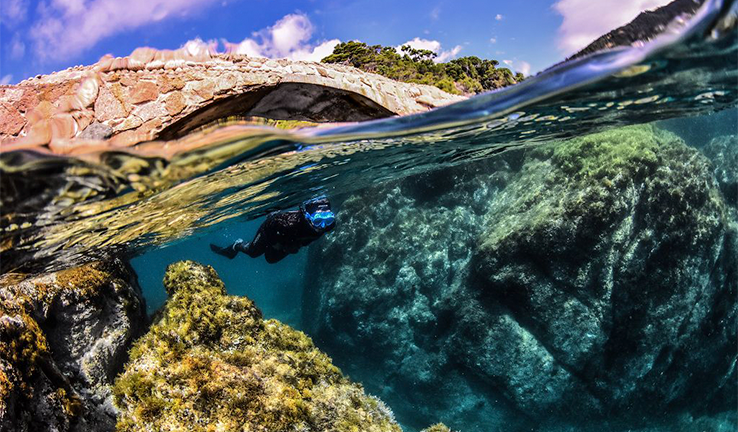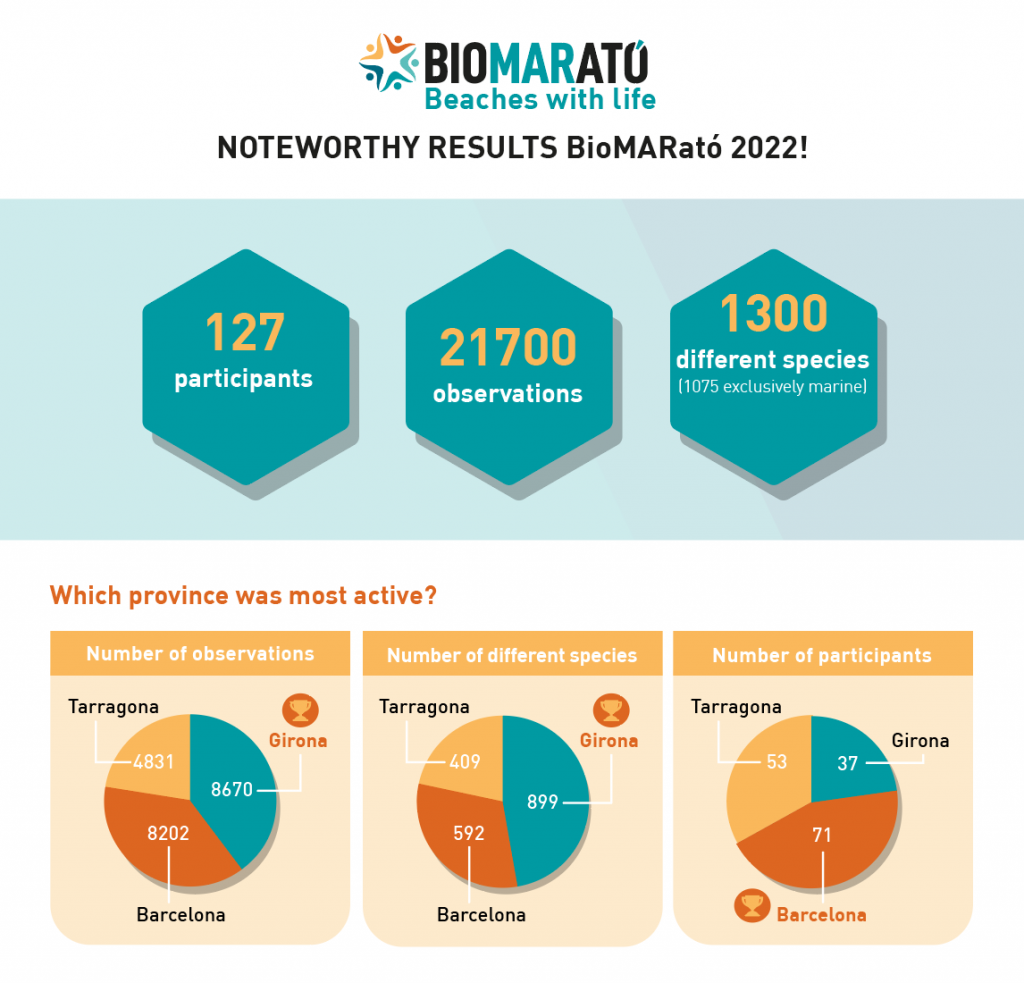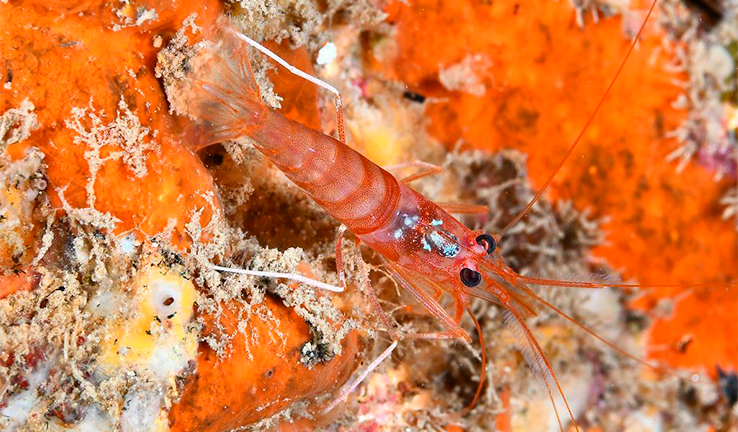The second edition of the BioMARató-Beaches with life, one of Catalonia’s most significant events of citizen science and marine observations, has also been celebrated this year on the island of Tremiti in Italy. Around 200 participants reported more than 25,000 photographs of marine species. The initiative, coordinated by the EMBIBOS research group of the ICM-CSIC, took place from the beginning of June until the end of September 2022. Throughout these months, BioMARató organised snorkelling and diving activities in various locations on Costa Brava, Costa Dorada, the Metropolitan Area of Barcelona and Tremiti Island. The aim was to photograph as many living beings as possible, identify the species and upload the image to the new citizen science platform MINKA.

Most of the images have already been validated by a community of experts in marine taxonomy and are available to the entire scientific community. “After analysing the results, we have located 24 exotic species and registered four new records of species that had never been sighted on the Catalan coast,” states Xavier Salvador, marine biologist, researcher at the ICM-CSIC and data curator at MINKA. The new records include the molluscs Limapontia capitata and Scyllaea pelagica, the first sighting in the western Mediterranean basin; the crustacean Lysmata nilita and the bivalve Pinctada imbricata, an allochthonous species with a cosmopolitan distribution.
In the case of Barcelona, the observations collected will be used to update the information on marine biodiversity in Barcelona City Council’s Biodiversity Atlas. Moreover, this information will also be included in a data paper to gather the marine species that have been censused in Barcelona.
“This is something that has not yet been done and that will contribute to improving marine life management on the city’s urban beaches,” says Jaume Piera, ICM researcher, associated with CREAF and coordinator of the BioMARató and the European projects Cos4Cloud, MINKE and ANERIS.
In this sense, Piera adds that “the idea for future editions is to continue extending the BioMARató to other parts of the world with a shared objective: to collect biodiversity data on urban beaches, which currently are practically non-existent”.
Increased participation
This year, the BioMARató has received almost twice of observations compared to the 2021 edition, “this is very positive, as citizen science has great potential both to collect data and to raise awareness among participants about the richness of biodiversity, its importance and threats”, highlights Sonia Liñán, researcher at the ICM-CSIC on communication and engagement in citizen science and part of the coordinating team of Cos4Cloud, MINKA and the BioMARató.
Specifically, in the case of Catalonia, 127 people participated and collected more than 21700 observations of 1300 different species (1075 marine species). Marlin Tremiti, the Laboratorio del Mare and Cluster Biodiversità Italia, together with Anèl·lides-Serveis Ambientals Marins, organised a friendly competition in this edition between the Metropolitan Area of Barcelona and the island of Tremiti (Italy). The activity took place in June as part of the Posidonia festival, which highlights the importance of this organism as a biodiversity reserve. Seventy-four participants collaborated in the competition, collecting more than 3,800 observations.

Impact of high temperatures
The results also reflect mortality events among colonies of red coral (Corallium rubrum) and populations of marine gorgonians (Eunicella singularis and Paramuricea clavata), “very worrying in the case of red coral, whose populations have been reduced over the years due to extractive activities,” says Salvador. These findings are aligned with the results obtained by the citizen science platform Sea Watchers, coordinated by the ICM-CSIC, whose scientific team has already warned that marine heat waves, in some cases, reduce the biomass of coral populations by 80 to 90% in the framework of the ‘Atención corales’ project.

BioMARató is an activity promoted by the ICM-CSIC. The entities responsible for organising the activities are Anèl-lides – Serveis ambientals marins, the Catalan Federation of Underwater Activities (FECDAS), Xatrac and Plàncton Diving. In addition, the European Horizon2020 projects Cos4Cloud and MINKE, coordinated by the ICM-CSIC, the diving centres iDive, Saita Diving, Vanas Dive, Underwater Barcelona and OCEANICOS.

















